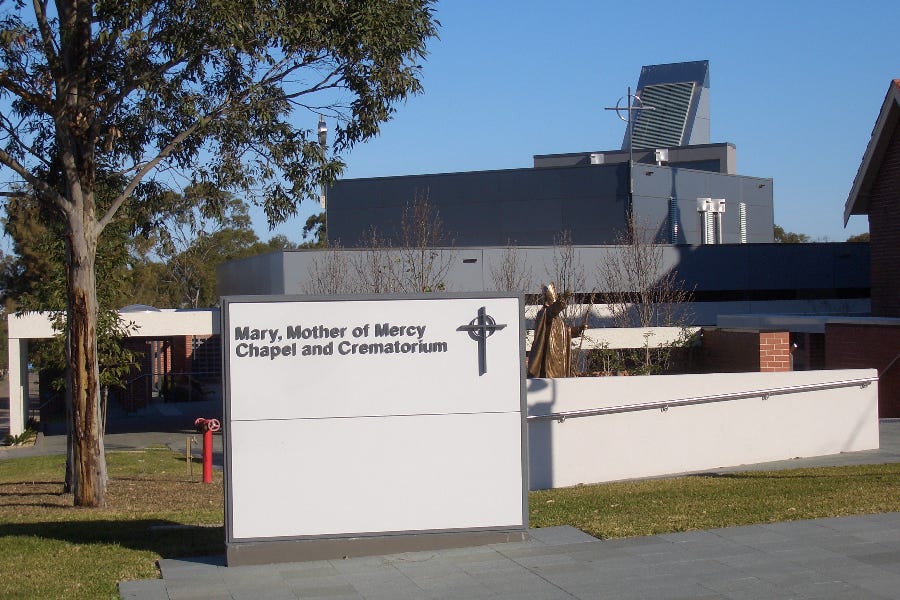A new bill is seeking to end the years-long “cemetery wars” that have pitted the Catholic Church against state authorities in Australia.

The dispute flared in 2021, when the New South Wales government sought to bring Sydney’s burial grounds on crown land — land managed by the state on the public’s behalf — under the control of a single government-run entity.
Officials argued that the step was necessary because of a critical shortage of new cemetery land for Australia’s most populous city and a funding shortfall for the maintenance of existing cemeteries.
The plan called for the merger of five independent cemetery trusts, including the Catholic Metropolitan Cemeteries Trust (CMCT) — a move that Sydney’s Archbishop Anthony Fisher described at the time as “shocking.”
He accused the New South Wales government of failing to establish new cemeteries or make proper provision for the care of existing graves.
“Now they are grabbing the care funds built up by Catholics and others over the years for the care of their graves and chapels and applying them to other uses,” the archbishop said.
He added: “No doubt there are some in government or the bureaucracy who would like to see faith groups vacate this space, as they would like to drive us out of education, healthcare and the like. But we will not give up the care of our dead without a fight. This is a matter of religious liberty and a matter of respect for the dead.”
But following a court ruling in February this year confirming CMCT’s charitable status and a change in the state government’s composition, the New South Wales government dropped the plan.
Introducing the new bill in the New South Wales parliament June 6, government minister Stephen Kamper said that the legislation would “bring the cemetery wars to a close.”
Kamper, a member of Australia’s Labor Party, argued that the Catholic Cemeteries and Crematoria Trust Bill 2024 needed to become law “as a matter of urgency” following the February judgment by the New South Wales Court of Appeal.
He said that the government was determined to address “the critical shortage of burial space in Sydney rather than continuing the fight over the control and management of crown cemeteries.”
“We are getting on with the job and ending the indecision of the past decade that has plagued the sector. This bill is a key pillar in the government’s actions to meet these pressing challenges. The bill provides the setting to implement the operating model for CMCT’s successor,” he said.
“This model acknowledges the Catholic Church’s track record of delivering essential interment services on crown land for over 150 years. The Church remains committed to that mission.”
Kamper said that the Church was showing its commitment through projects including the development of Macarthur Memorial Park at Varroville, a suburb of Sydney, which he described as “the first new crown cemetery in Sydney in perhaps eight decades.”
“Macarthur Memorial Park will provide up to 136,000 burial plots, accessible to people of any or no faith, which will open in March next year,” he said.
The Catholic trust’s first cemetery was the Catholic section of Rookwood Cemetery, which saw its first recorded burial in 1867. CMCT today manages five crown cemeteries in the Greater Western Sydney region, as well as Australia’s only Catholic crematorium, located at Rookwood.
Speaking at the bill’s second reading, Kamper said that the February court ruling highlighted that the trust’s purpose was defined as “burying the dead of the Roman Catholic denomination at the Rookwood Catholic cemetery.”
He said: “The narrow terms of the trust mean that CMCT has inadvertently breached the trust in two ways: by interring the dead of all faiths and those without a faith; and by using proceeds from Rookwood to provide burial services at other sites.”
“I may say that all that was done in good faith. In other words, the terms of the trust do not allow CMCT or its successor to operate in a way that serves the whole community.”
“As a modern crown cemetery operator, CMCT manages its cemeteries as a portfolio and for the benefit of all people in need of burial services. It is critical that CMCT’s successor is empowered to continue to do so. The bill expands the trust’s narrow purpose.”
He added: “CMCT’s successor will be able to use those trust funds to bury people of all faiths, and those without a faith, across all its crown cemeteries.”
The new bill’s architects say the new legislation will benefit 25 religious groups that emphasize the importance of burial, with CMCT’s successor body providing an equitable service for the groups at new cemeteries.
Following a public outcry when the merger plan was unveiled in 2021, the project was shelved for further consultation.
But the New South Wales government continued to demand that CMCT submit to an audit by the state auditor-general, arguing that the government needed to ensure CMCT’s funds were “used for their proper purpose.”
The Catholic trust insisted it was not a “controlled entity of the state,” but an independent and legally registered charity, saying that to submit to state auditor-general oversight would imperil its legal standing as a charity — a position that won out in court.
CMCT’s CEO Lauren Hardgrove told Australia’s The Catholic Weekly newspaper that she was confident the new bill would become law later this month.
“This modernizes the purpose of the trust and brings it into the 21st century,” she said.




